The incredible true story behind Hacksaw Ridge
Mel Gibson’s new movie charts the wartime heroics of Desmond Doss (Andrew Garfield), an Army medic who saved 75 men during the bloody battle of Okinawa.
So what really happened?
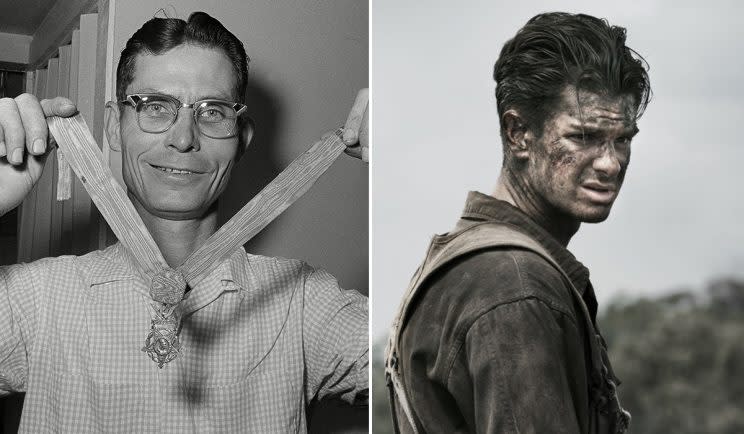
The men didn’t call it Hacksaw Ridge.
“It was always ‘the escarpment’,” Doss’s fellow medic Leigh Willoughby told The Washington Post in 2016.
It was only later that the Maeda Escarpment in Okinawa became known by its nickname. What never changed was the terrifying nature of the brutal fighting that took place there in April 1945 – a 400-foot cliff atop which lay heavily-fortified machine-gun nests, Japanese soldiers and booby traps.
The 77th and 95th Infantry divisions were desperate to take the land, a job made harder by the problematical approach via ladders and the hidden nature of the enemy.
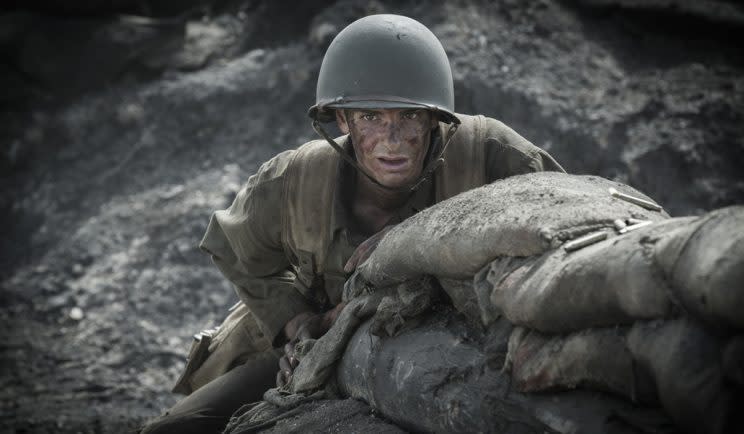
Into the fray came Desmond Doss (played in the movie by British actor Andrew Garfield). Born in Virginia, Desmond was brought up as a Seventh Day Adventist, a strict brand of Christianity which promotes peace and believes the Sabbath to be on a Saturday.
When World War II broke out, Doss was desperate to serve, but had a quandary.
“Violence conflicted with his religious and moral beliefs,” says director Mel Gibson. “He refused to even touch a weapon.”
Why Saving Private Ryan cast almost quit before filming
10 actors who ruined their reputations
Unsurprisingly, this – along with his refusal to work on a Saturday – immediately brought him into conflict with his fellow soldiers as well as his military superiors.
He was threatened with a court-martial and there was a meeting to discharge him on the grounds of mental instability. Later, his captain Jack Glover (played in the movie by Sam Worthington) ended up calling him “one of the bravest persons alive”.
His squadmates teased him and asked what he would do if faced with a Japanese gun.
“He said, ‘Well, I guess he’d kill me,’” remembered Leigh Willoughby. “I might try to take the gun away from him if I could.’”

There were plenty of Japanese weapons in Okinawa. The heavily-fortified Maeda Escarpment was deemed almost a suicide mission as rows and rows on US soldiers were repeatedly cut down by machine gun fire and mortars.
Now an Army medic with the 77th, Desmond desperately tried to help the injured as bullets and debris rained down on them. Eventually, his unit was told to retreat but unfortunately, there were still wounded on top of the ridge and the treacherous ascent made it near-impossible to rescue them. This was compounded by the unforgiving Japanese soldiers who were unafraid to venture onto the battlefield and finish off the injured.
What the Allies did have was Desmond Doss.
The film paints his exploits as happening during one evening, but what’s even more amazing is that his heroism at Hacksaw Ridge actually occurred over a three-week period.
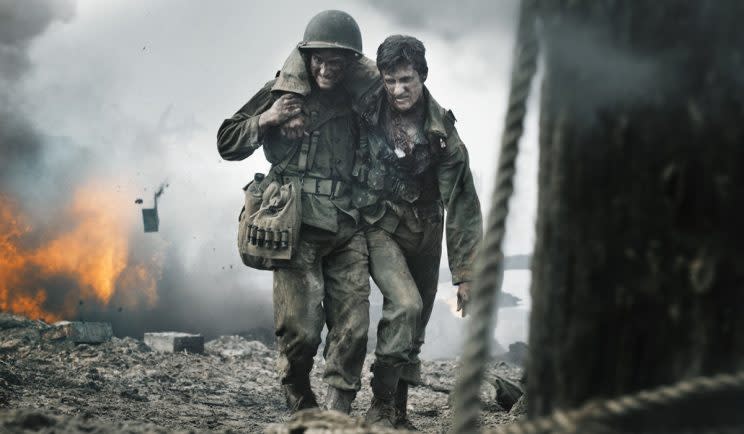
One day he ran through grenade explosions to where four soldiers were injured and then made four separate trips under fire to get them to safety. Another time he helped a severely-burned colleague who was down just seven metres from enemy lines, carrying him back to the field hospital while guns and bombs detonated around him.
His courage was only cut short because he was hit in the legs by grenade shrapnel, though after other medics reached him five hours later and put him on a stretcher, he crawled off when he saw a man he perceived to be more needy of their attention. He finally made it back to the aid station with an additional arm fracture from a sniper bullet, which he had treated himself using the stock of a rifle as a splint.
When all was said and done Desmond, self-described conscientious co-operator and non-combatant, had saved 75 men.
Every time he rescued a casualty, he’d pray out loud, “Lord, help me get one more…”
“There are few, if any people, who could or would replicate his actions,” says Gibson. “The humility he maintained in discussing his heroics is a testament to the mettle of the man.”
Even more incredible is that his exploits at Hacksaw Ridge weren’t the first time he had shown such bravery. After signing up in 1944, he’d served initially in Guam and the Philippines, where he earned a Bronze Star Medal for aiding soldiers under fire.
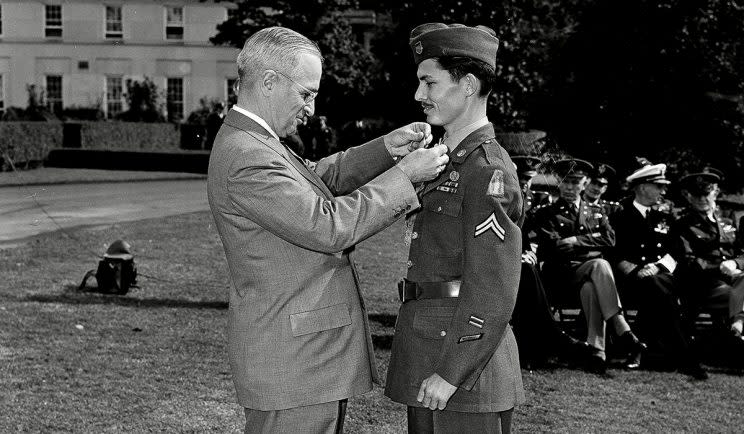
In October 1945, Desmond stood before President Harry Truman to receive the Medal of Honor, the military’s highest award – he remains one of only three conscientious objectors to receive it.
After the war, he and his wife Dorothy had a son and they lived in Georgia. In 1946, he got tuberculosis and lost a lung and five ribs, while an antibiotics overdose in 1976 made him completely deaf, something only rectified by a cochlear implant 12 years later.
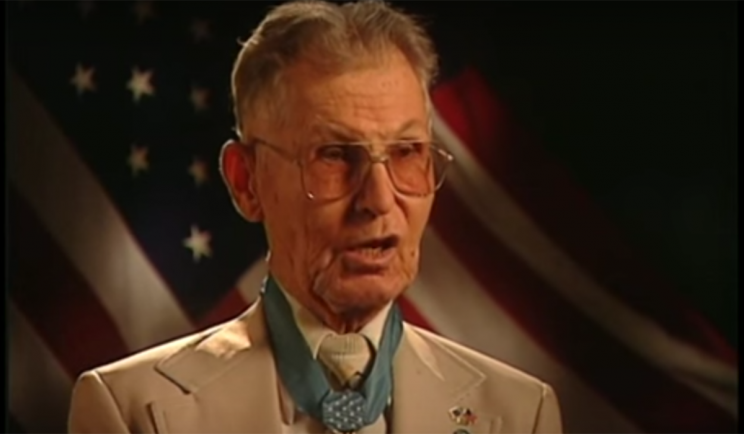
He died in 2006 aged 87 and was buried with full military honours in Chattanooga, Tennessee. Humble of his wartime bravery, it took many years and much persuasion for him to agree his story should be told.
“Desmond Doss was singular,” says Mel Gibson. “[He] was a completely ordinary man who did extraordinary things.”
‘Hacksaw Ridge’ is in UK cinemas from 26 January. Watch a trailer below.
Read more
10 things you never knew about Goodfellas
What if the Nazis won World War II?

 Yahoo Movies
Yahoo Movies 
